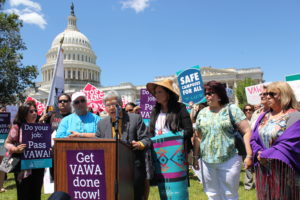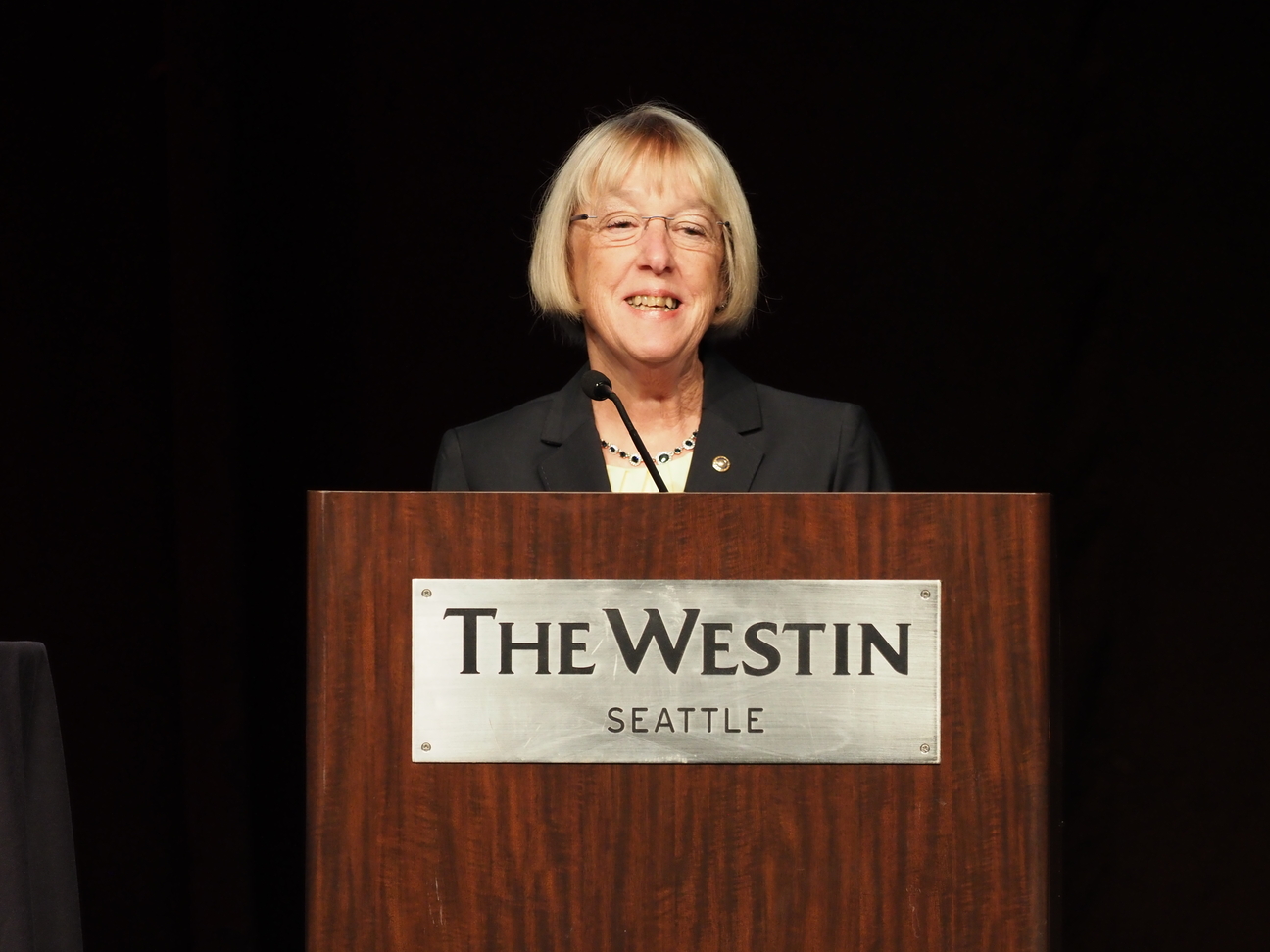Congress experienced a thaw in frozen positions and gridlock late this winter, its duration unknown but worthy of recognition. Up for reelection, Senator Patty Murray, D‑Washington, could take to the evening news with a pair of achievements.
Republicans didn’t shut down the federal government, which bespeaks their hopes of capturing Congress in the 2022 midterm elections.
The Senate passed, on a bipartisan 68–31 vote, a 2,700-page, $1.5 trillion omnibus bill that will keep the federal government running until September.
Okay, it was five months into the current fiscal year, but crafting a compromise can take that long. The legislation provides a $46 billion or 6.7 percent increase in non-defense spending, insisted on by Democrats, with a $2 billion, 5.6 percent defense boost at the insistence of Republicans.
Republican attacks on vaccine mandates were batted away. A $13.8 billion Ukrainian aid package was included, opposed only by the far, far right.
The spending bill reauthorizes, until 2027, the landmark Violence Against Women Act, originally enacted in 1994 with Murray and then-Senator Joe Biden, D‑Delaware, as lead sponsors. The act had expired in February of 2019, and expired early in the past decade as Congress fought over its 2013 extension.
VAWA emerged stronger. It expands special criminal jurisdiction of tribal courts to cover non-Native perpetrators of sexual assault, child abuse, stalking, sex trafficking and assaults on tribal police that take place on tribal lands.

The legislation boosts services and support for underserved and marginalized communities – including LGBTQ+ survivors of domestic violence, victims of dating violence, and stalking. It provides money for survivor-based, community centered support services.
“The tribal provisions in the VAWA reauthorization is really a big deal,” said Senator Kyrsten Sinema, D‑Arizona. It didn’t come without a prolonged fight.
A decade ago, Republicans were cool to tribal protection, and opposed protection of same-sex victims, and fought against allowing battered undocumented immigrants temporary visas while their cases were heard.
Democrats have yet to secure provisions barring those convicted of violence against women from the future purchase of firearms.
The VAWA battles have shown Murray’s tenacity.
The Republican-run House tried to run a weaker bill in 2013, recruiting Representative Cathy McMorris Rodgers, R‑Washington, as prime sponsor.
They finally yielded to a vote.
The weaker Republican bill went down to defeat, the stronger legislation championed by Murray was sent to President Obama for signature.
A second major accomplishment of Congress, the long-sought Postal Service Reform Act, will put the U.S. Postal Service back on its fiscal feet. It passed on bipartisan votes of 79–19 in the Senate and 342–92 in the House.
The legislation requires retired Postal Service employees to enroll in Medicare, dropping Congress’ previous mandate that forced the USPS to cover its health care costs years in advance.
The Act will save an estimated $50 billion over the coming decade.
The Post Office gets no appropriation but must rely on its own revenues.
The Postal Service Reform Act would require that USPS create an online dashboard with local and national data on the delivery of mail.
It also ensures continuation of six-day mail delivery: During the COVID-19 pandemic, many Americans have depended on the Post Office for commerce and personal communication.
Without removal of the health care requirement, the USPS was in danger of running out of money in 2024. As Senate Majority Leader Chuck Schumer noted, “The Post Office usually delivers for us, but today we’re going to deliver for them.”
On short notice, the U.S. Senate has also approved on a voice vote legislation that would make Daylight Saving Time permanent across America, except in Arizona and Hawaii, where residents do not switch their clocks. If approved by the House, the Sunshine Protection Act would take effect in November of 2023.
The country tried year-around Daylight Saving Time in the 1970s, during the Arab Oil Embargo, but dark early mornings caused Congress to go back to semiannual clock switches. The Sunshine Protection Act was championed by the unusual duo of Murray and Marco Rubio, R‑Florida. “We’re one step closer to never having to change our clocks again,” Murray said after the Senate vote.
The legislation elicited a grumpy response from Washington’s Republican State Chairman Caleb Heimlich. “I am glad we are doing away with changing our clocks,” Heimlich tweeted. “I just wish Patty Murray had any other legislative accomplishments over the past thirty years.”
What about the Violence Against Women Act, passed twenty-eight years ago and reenacted within the same week? Doesn’t go with the Republican narrative, especially when Cathy McMorris Rodgers tried to weaken VAWA and fellow Representative Doc Hastings voted against the 2013 VAWA reauthorization.

